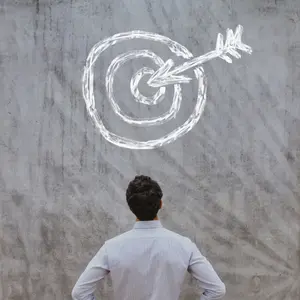

Meaning and Purpose

Meaning and Purpose
Self-Compassion Is Key to Keeping Our New Year’s Resolutions
As we enter a new year, many people are trying to stick to their New Year’s resolutions to adopt healthier habits like exercising more or drinking less. However, it’s estimated that 80% of resolutions are abandoned by February.
Psychologists and others have examined why it is that resolutions are so hard to adhere to. One theory is that behind the desire for self-improvement is a feeling that we’re not good enough—not thin enough, fit enough, smart enough, etc. Ironically, this drive to improve can be counterproductive to change. “The curious paradox is that when I accept myself just as I am, then I change,” says psychologist Carl Rogers.
While change can be satisfying, which is why we seek it, the pressure to perform and succeed can overwhelm the senses and lead to failure. So, in order to change bad habits, having compassion for ourselves is important.
Here are five tips to create lasting change:
- Instead of being self-critical of your behaviors, be curious: What’s causing your negative attitude?
- Don’t aim for perfection; there will be setbacks if you’re trying out something new.
- Don’t expect sheer force of will to work every time. And don’t set your challenge too high.
- New behaviors take time, and where is that time coming from? Are you cramming too much into your day? It might be time to invite more space into your life.
- It’s easier to change a behavior if you surround yourself with people who understand and support your goals.
Mindfulness is a useful tool for breaking the habit loop that we form to satisfy our urges. The awareness that comes from mindfulness is a kind of curiosity that can open us up to fresh choices.
Habits fall into four categories—wanting, distraction, resistance, and doing. Habits of wanting, or craving—addictions like drink or drugs—lead us to believe that our happiness is tied up in what we crave. Learning to stay with uncomfortable or difficult feelings can weaken the hold that the craving has on us.
Many of us pursue the habit of distraction through our electronic devices. Without distraction, we’re restless and dislocated. Accepting and examining these uncomfortable feelings can help them recede.
The habit of resistance, which expresses itself in anger and frustration, stems from trying to protect ourselves from harm. Bringing awareness to your breath can help ease tension, while an awareness of what you’re experiencing can help you break the habitual behavior.
Many people live in a state of perpetual movement, fearing that something bad will happen if they stop. Stress and anxiety results from constantly “doing.” Mindfulness practice can prevent us from being swept up in the turmoil of our emotions.
REFERENCES
Mindful.org. (n.d.). How to change your habits with mindfulness. https://www.mindful.org/how-to-change-your-habits-with-mindfulness
Wolf, C. (2022, January 7). Why do resolutions fail? 5 ways to invite positive and lasting change. Mindful.org. https://www.mindful.org/why-do-resolutions-fail-5-ways-to-invite-positive-and-lasting-change


 By
By







